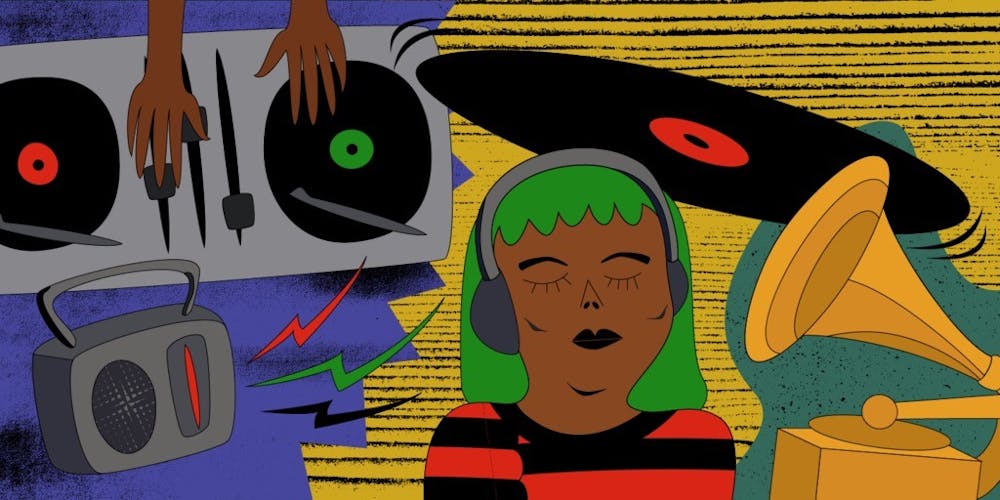In light of the protests in support of #BlackLivesMatter that have seized the nation, record labels (such as Republic Records) have taken action to fight racism within the music industry by removing the word 'urban' from their official terminology.
Soon the Recording Academy, the organization that runs the Grammy Awards, followed suit, announcing they would discontinue the term 'urban.' This led them to rename several categories. The most significant of these changes was renaming the heavily criticized "Best Urban Contemporary Album" category to "Best Progressive R&B Album." The irony of this apparent erasure of the term 'urban' from the Academy's vocabulary is that they kept it in the "Latin Pop Album" category, which has been renamed to "Latin Pop or Urban Album."
In any case, the word 'urban' has had a long history in the music industry, holding back Black artists from recognized success in their careers.
As the sociologist Elijah Anderson has noted, the term 'urban' is rooted in veiled racism. The word alludes to 'the hood' and functions as the musical equivalent of the phrase 'inner city,' bringing with it all the stereotypes involved within that image— such as drug–related crime and gang violence perpetuated via guns. 'Urban' minimizes the diversity of Black music, forcing it into a certain, limited experience that ignores the breadth of Black artists and the multitudinous genres they occupy.
With a long and potent legacy, the word 'urban' bars Black artists from the pop mainstream and relegates them to secondary Billboard charts, which effectively segregates Black artists from their white peers. "Urban contemporary" music, a trite catch–all for Black music, is viewed as being less than than pop music, even if the Recording Academy has never explicitly said so. Lest we forget Macklemore's notorious text to fellow nominee Kendrick Lamar after the former won Best Rap Album for 2014 with the latter winning none of his seven nominations.
Pop artist Tinashe recently tweeted that a program director once told her that if she truly wanted to be considered 'pop,' she shouldn't have collaborated with the rapper Travis Scott. However, white pop stars such as Katy Perry, who has collaborated with the rap trio Migos, and Taylor Swift, who has collaborated with both Kendrick Lamar and Future, have never been considered anything other than 'pop' music. No one calls into question white artists' ability to cross between genres, regardless of those artists' discographies and collaborators. Only Black artists have been and are expected to carry the weight of Black music's history.
Earlier this year, Tyler, the Creator blasted the Grammys after his performance, saying that "Urban contemporary" was just a "politically correct way of saying the n-word." Indeed, one wonders how the word 'urban' can be used to describe albums like Beyonce's Lemonade. It's especially hard to imagine Lemonade as an 'urban' album since it genre-hops from rap to pop and even to country and back. Musically, the album has no distinct ties to the problematic idea of 'urban' music, except for Beyonce's proud Blackness. Therein lies the issue: Despite its positioning as a unique genre, 'urban' isn't so much a useful descriptor as it is a box to throw all Black music in.
When the Recording Academy describes black music as 'urban,' it isn't necessarily about how artist themselves perceive their work, but about how others understand it instead. "It sucks that when we—and I mean guys that look like me—do anything that's genre–bending or that's anything [like that], they put it in a rap or urban category," Tyler continued. The term isn't just an inaccurate, problematic way of describing music. It erases Black artists' ability to define themselves by taking away their agency and reducing their work to a certain culturally approved stereotype of what Black music can be or should be. It means that no matter how popular rap may be among the American populace, it is still not 'pop' itself. "Pop means white mainstream," Tinashe tweeted.
Make no mistake: The Recording Academy still made progress by removing 'urban' from their official language surrounding Black music. But it will still take more effort and action from everyone involved in the music industry—from fans to artists themselves, not just label executives, to truly give Black music its due, placing it on equal footing with the white popular music it helped birth in the first place.

